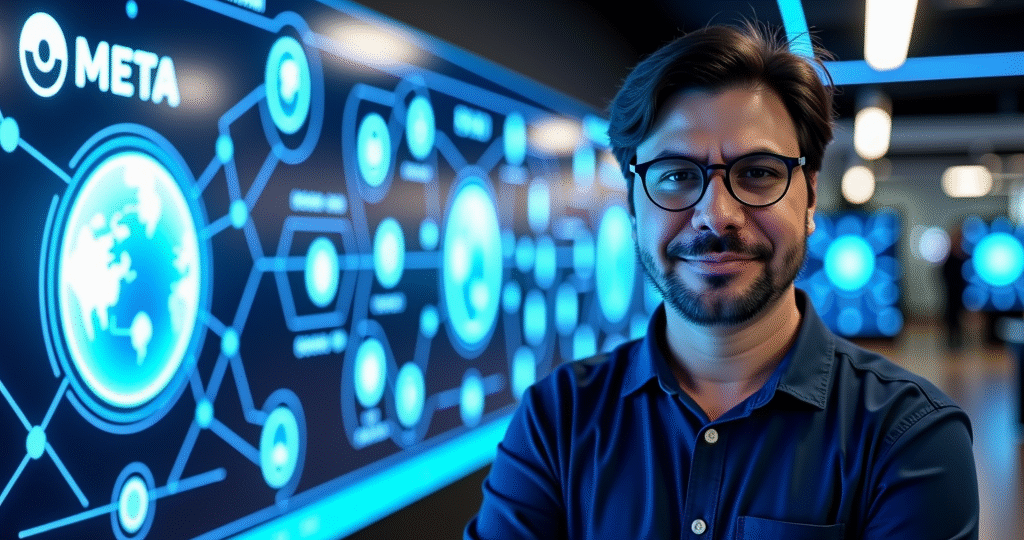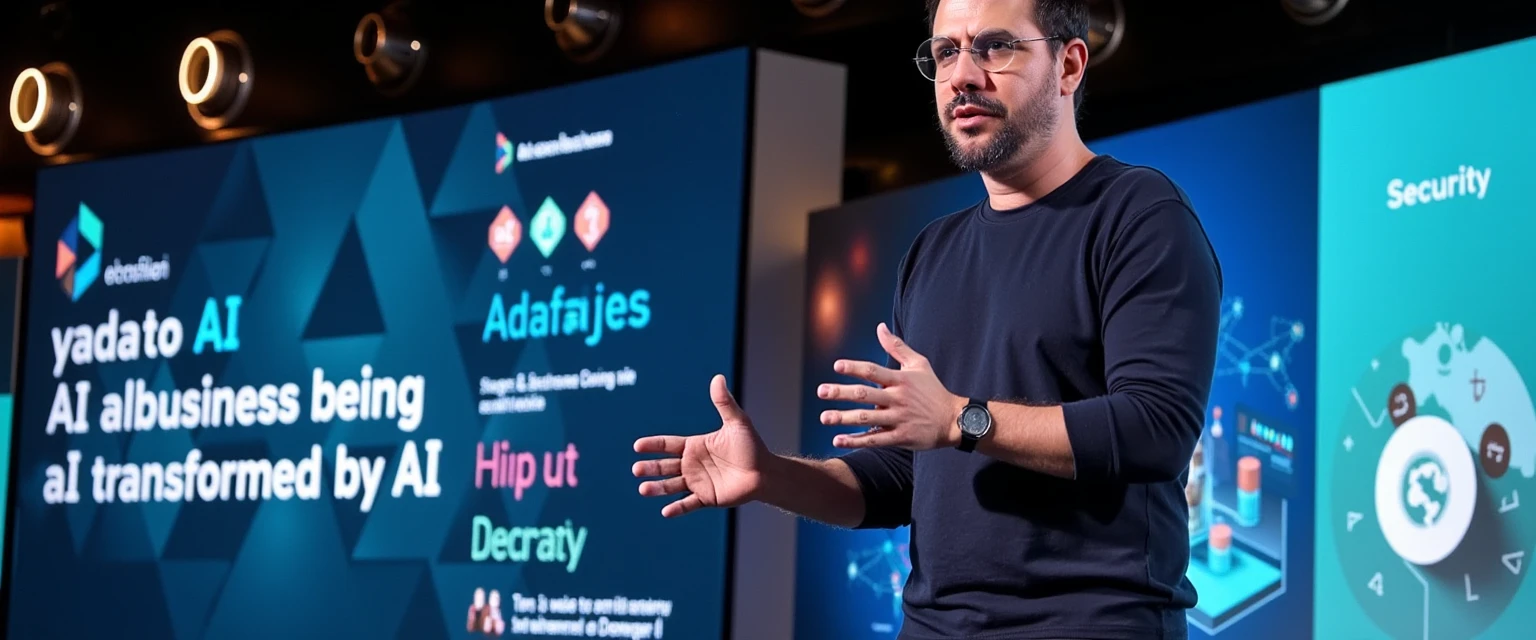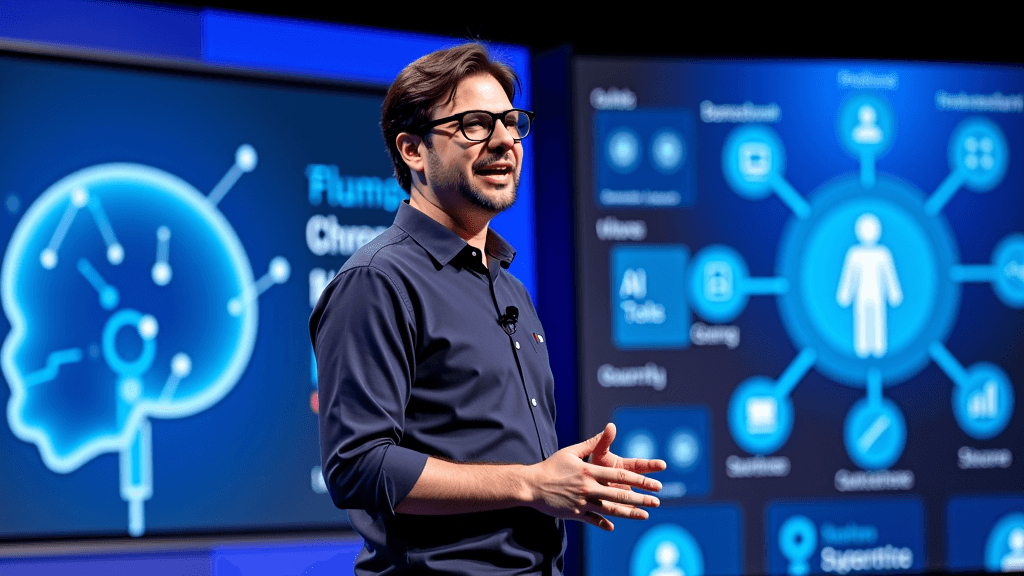BRICS Proposes Ethical Governance of AI as Meta Invests Billions in Superintelligence — What This Reveals About the Global Technological Future
July 7, 2025 | by Matos AI

Do you know that moment when you realize that we are living a turning point in the history of technology? Well, that is exactly what happened in the last 24 hours in the global scenario of artificial intelligence.
On one hand, we have BRICS countries releasing historic declaration on ethical governance of AI, advocating an inclusive approach based on the UN Charter. On the other hand, Meta hiring experts from OpenAI to create “the most powerful AI ever seen” with billion-dollar investments.
This dichotomy is no coincidence. It reveals two completely different visions of the future of artificial intelligence — and the decisions made now will define whether we will have a truly democratic technology or one concentrated in the hands of a few.
Join my WhatsApp groups! Daily updates with the most relevant news in the AI world and a vibrant community!
- AI for Business: focused on business and strategy.
- AI Builders: with a more technical and hands-on approach.
BRICS and the Quest for Fairer AI
The BRICS declaration on AI is not just another diplomatic document. It is a clear attempt to create a counterpoint to the technological hegemony of American Big Tech.
The group emphasizes three fundamental pillars that I consider essential for any serious discussion about AI:
- Respect for national sovereignty: Each country must have autonomy to define its own rules and values
- Inclusive governance: Emerging countries and the Global South need to have an active voice in global decisions
- Transparency and human oversight: AI should serve the public interest, not just corporate profits
What strikes me most is the warning about the risks of Artificial General Intelligence (AGI). BRICS recognizes that, if poorly managed, AGI can “deepen inequalities and technological dependencies.”
This concern is entirely justified. In my experience working with startups and public policy, I have seen firsthand how technological concentration can create chasms of opportunity. AI cannot repeat this mistake.
The Billion Dollar Race to the Finish Line
Meanwhile, Meta is literally going all-in on the race for superintelligence. OpenAI Hires Advanced Reasoning Model Specialist Trapit Bansal, signals a significant escalation in investments.
With a budget exceeding US$100 million for this team alone, Meta is focusing on:
- Advanced reasoning models: AIs that make complex decisions with greater autonomy
- Enhanced contextual understanding: Systems that understand nuances and contexts like never before
- Scalability and generalization: Technologies that work in multiple scenarios
Interestingly, Meta promises “superiorly accurate and interpretable AI models.” This suggests a genuine concern for explainability — something I’ve always argued is fundamental to public trust in AI.
The Environmental Paradox of Big Tech
But here we have a fascinating paradox. Carbon emissions from AI data centers could grow 11-fold by 2030, according to an Accenture report., reaching the equivalent of Canada's annual consumption.
Let’s put that into perspective: we’re talking about 612 terawatt-hours per year and over 3 billion cubic meters of fresh water. It’s like AI is literally drinking an entire country.
Meta, for example, is requesting US$ 29 billion for new data centers, including a $10 billion complex in Louisiana. It’s an astronomical bet on the future of AI — but at what environmental cost?
As someone who has always believed in technology as a positive transformative force, I am concerned about this headlong rush. Innovation without environmental responsibility is not sustainable in the long term.
Brazil at the Forefront of AI Education
In the midst of this global scenario, Brazil is taking important steps. UnB announced the country's first bachelor's degree in Artificial Intelligence, scheduled to begin in 2026.
This initiative is especially relevant because:
- Flexible curriculum: Preparing professionals for multiple areas of application
- Advanced subjects: Including reinforcement learning and generative AI
- Integration with search: Through the Integrated AI Research Center (CenIA)
What impresses me most is that UnB is investing in supercomputing and training its own administrative team. This shows a systemic vision of the transformation that AI can bring to institutions.
The Democratization of AI Through Smartphones
One of the most exciting news stories of the last 24 hours was about How AI tools are turning smartphones into professional studios. According to research by Hedgehog Digital, 75% of Brazilians who use AI do so via cell phone.
This is revolutionary. Tools like Gemini, Veo and Gamma are enabling anyone to create professional corporate videos and presentations in minutes, using only voice commands.
Expert Thiago Muniz, from FGV, made a brilliant observation: “Generation Z influencers and billionaire executives use the same tools, differing only in strategic application.”
In my experience mentoring startups, I have always argued that the democratization of technology is what really drives innovation. When powerful tools become accessible to everyone, applications emerge that we never imagined.
The Risks We Cannot Ignore
But not everything is rosy. Professor Dora Kaufman has warned about the phenomenon of AI “hallucinations”, when systems like ChatGPT literally “invent” answers.
This is because AI relies on statistical patterns, not real knowledge. When there is insufficient data, it can create false information that appears true.
Kaufman highlights three critical risks that I consider fundamental:
- Democratic risks: Disinformation can undermine public trust
- Environmental paradox: AI helps combat climate change, but consumes massive resources
- Conceptual confusion: Many still don't understand that AI is not “intelligent” in the human sense.
The Last Frontier: Our Mental Privacy
Silvio Meira brought a deep reflection on privacy and mental sovereignty. He argues that platforms like Meta and Google already generate billions in revenue through “surveillance capitalism.”
But now, with models like GPT-4, the situation becomes more complex. AI can infer personality traits and adjust messages to influence our decisions — even political ones.
Meira proposes an interesting solution: legislation that criminalizes psychological inferences without consent and the development of “antidote AIs” against cognitive manipulation.
As someone who has always fought for diversity and inclusion in the innovation ecosystem, I see this as a fundamental human rights issue. Our minds are the last frontier of privacy — and we need to protect them.
The Dark Side of Digital Politics
Unfortunately, PT-linked profiles are using AI-generated videos for political attacks, generating 280 thousand mentions on social media and millions of interactions.
This reveals how AI is being weaponized to manipulate public discourse. It is troubling to see technologies that should empower being used to polarize and misinform.
This situation reinforces the urgency of the BRICS proposals for ethical governance of AI. We need clear rules before it is too late.
Professional Training: The Key to the Future
Amidst all these challenges, experts are teaching you how to use ChatGPT, Gemini and Claude professionally. The “golden rule of prompts” involves structured commands with Persona, Task, Context and Format.
What excites me most is seeing how the market is adapting. capAI has entered into a deal to license the Author42 platform, focused on creating editorial content with AI.
The global publishing market is expected to grow from £116bn to £147bn by 2030, with AI jumping from US$3.6bn to US$41.2bn in the same period.
Final Reflections: Between Promises and Realities
The last 24 hours have revealed a complex and fascinating scenario. We are simultaneously experiencing:
- A billion-dollar technology race between giants like Meta and Google
- Attempts at multilateral regulation led by BRICS
- Real democratization of technology through smartphones and accessible tools
- Increasing risks of misinformation and manipulation
- Educational opportunities like the UnB course
What strikes me most is how different actors are responding differently to the same phenomenon. While some are chasing superintelligence, others are focusing on ethical governance. While some are using AI to manipulate, others are using it to educate and democratize.
I believe we are at a crucial moment where the choices we make today will define whether AI will be a force for concentrating or democratizing power. As I always say: technology is neutral, but its applications never are.
The big question is not whether AI will be powerful — we already know that it will be. The question is: Who will control this technology and how will it be used?
In my mentoring with startups and companies, I always emphasize that this is the time to position yourself strategically. Not only to use AI, but to understand its ethical, environmental and social implications. Because in the end, not only the most technological, but also the most responsible will win.
The AI revolution is just beginning. And it’s up to each of us to choose which side of this story we want to be on.
✨Did you like it? You can sign up to receive 10K Digital's newsletters in your email, curated by me, with the best content about AI and business.
➡️ Join the 10K Community here
RELATED POSTS
View all



